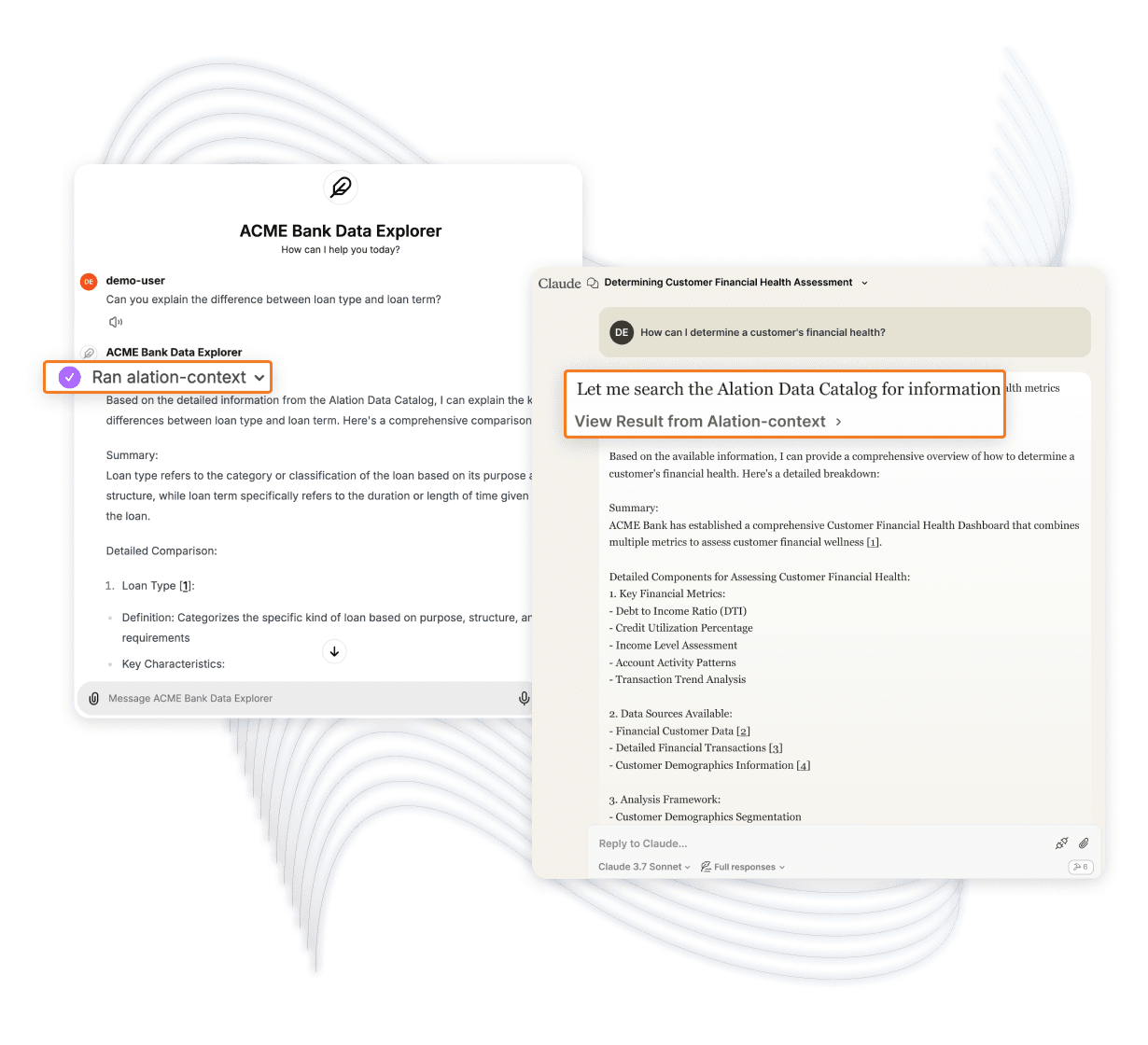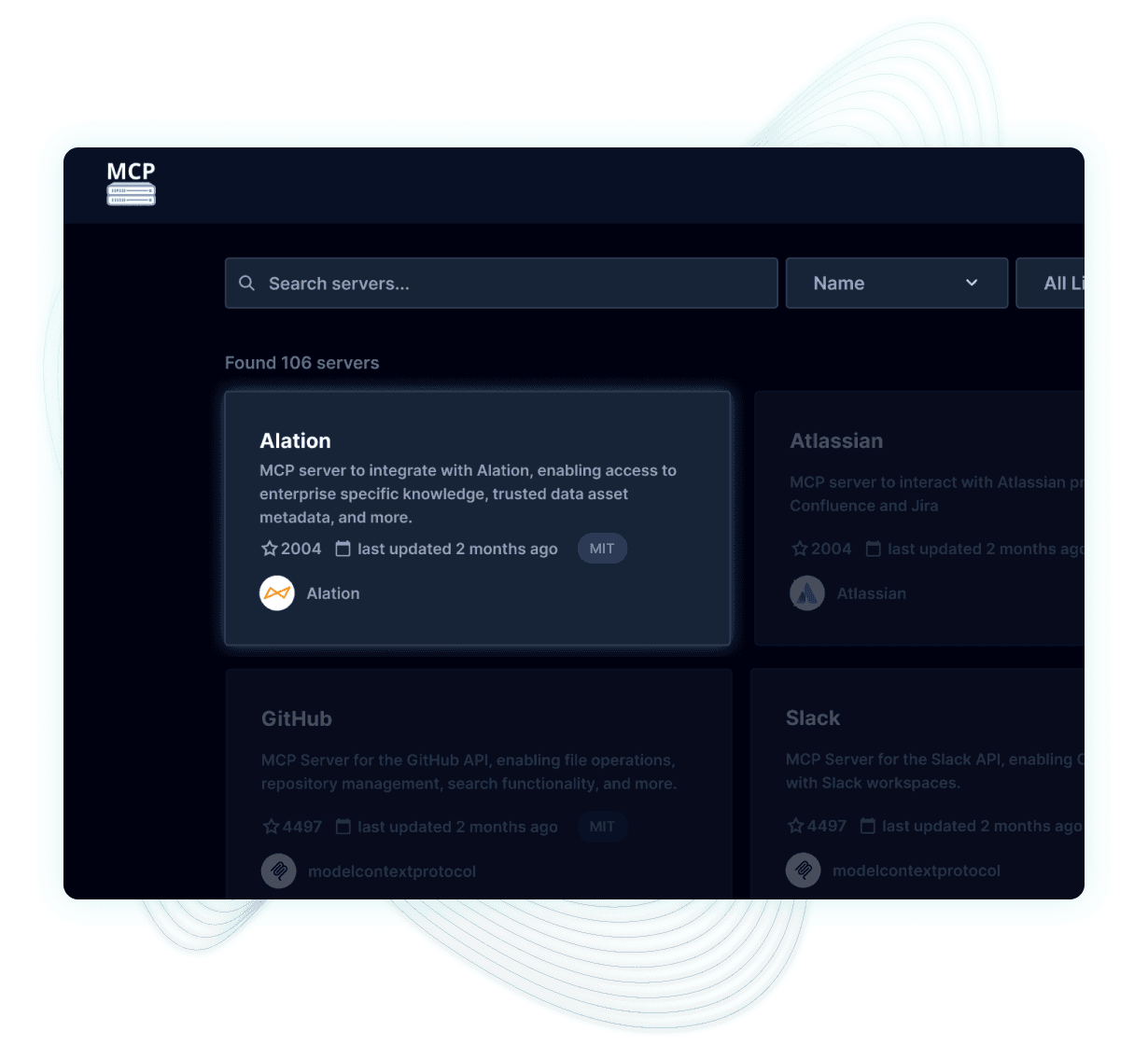
Develop smarter agentic applications
Alation’s Agentic Data Intelligence Platform delivers the trusted metadata context AI agents need to drive more accurate reasoning and automation. Alation AI Agent SDK enables you or third-party partners to build AI agents leveraging the data intelligence capabilities of the Alation platform.

Alation AI Agent SDK: How it works
The Alation AI Agent SDK simplifies AI agent deployment by standardizing connections between data sources and tools. Alation’s integration ensures your AI agents have immediate, secure access to quality data, improving search and discovery, reasoning, and operational efficiency while reducing complexity for developers or anyone building agents in your organization or through third-party partners.
40%
40% of CDOs cite ‘Supporting AI’ as their #1 strategic objective.
IDC, Office of the CDO Survey Findings, IDC, Aug 2024
15%
By 2028 at least 15% of day-to-day work decisions will be made autonomously by AI Agents.
Gartner, How Intelligent Agents in AI Can Work Alone, Oct 2024
45.1%
The global use of AI Agents is expected to grow at a 45.1% CAGR from 2020 through 2030.
AI Agents Market Size & Trends, GVR, Dec 2024
AI Agent Use Cases
From customer service co-pilots to regulatory compliance management agents, metadata-powered AI applications increase productivity and enhance user experiences with more context to improve reasoning and decision making.
Financial Services
AI agents can ensure regulatory compliance by monitoring metadata on data access, transactions, and customer data usage.

Healthcare
AI agents can manage patient data securely, ensuring HIPAA compliance by tracking metadata on sensitivity and access policies.

Manufacturing
AI agents can optimize supply chains by analyzing metadata on supplier performance, inventory, and logistics for smarter operations.

Marketing
AI agents can help marketers create targeted promotions by integrating data across sources and tools to more efficiently combine customer profiles, timing, and location.

Customer Support
AI chatbots can generate contextual, policy-compliant responses using metadata on user behavior, content, governance, and past interactions.


FAQs about AI Agent SDK
An AI Agent SDK is a developer toolkit for building intelligent agents that interact with enterprise data. With it, you can create agents that automate governance tasks, surface recommendations, answer natural language queries, or take proactive actions on data.
An SDK accelerates development by providing prebuilt components, integrations, and APIs. This reduces time-to-value, lowers engineering costs, and ensures agents are secure, scalable, and interoperable with enterprise systems.
Capabilities include connectors to data platforms, natural language processing, access to metadata, governance enforcement APIs, and orchestration tools. Together, these make it easier to build powerful, context-aware AI agents.
